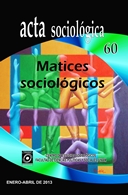Gabino Barreda´s positivism. A study from the historical-genetic theory
Main Article Content
Abstract
Mexican positivism has been analyzed from different perspectives; however, no approach has been studied from the perspective that includes the evolution of logical thought and the place that the positivism occupies in the genesis of cognition, i.e., the historical change of the interpretive paradigm that is applied to make of the reality an understandable world. The analysis of logical-structure patterns that sustains all of the ideas of positivism would be an enormous task, so the article is limited to only follow the ideas of who introduced it in Mexico and he who taught two generations of positivist: Gabino Barreda.
Barreda´s thoughts documented the transition of subjectivist logic to a relational logic process very well. In this transition it shows that it is possible to discard the traditional logic of a single stroke of his hand and that new ideas conserve parts of the old logic. Barreda´s ideas on education or Darwin´s theory fell into intractable paradoxes, as the level of knowledge of their time still does not meet the conditions for a scientific understanding of the ontogenetic and phylogenetic development of man.
